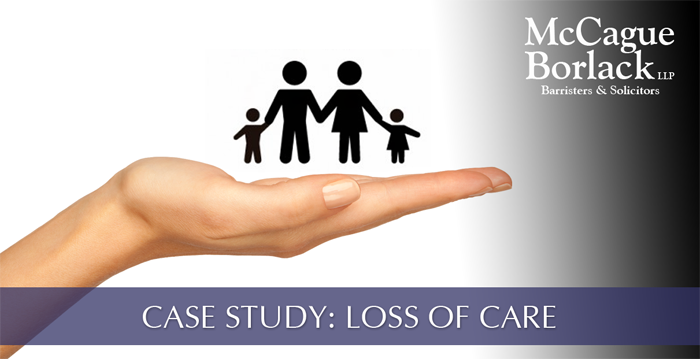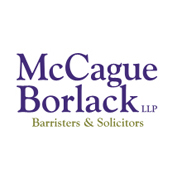By Alan Drimer
On June 25, 2021, the Ontario Court of Appeal, led by Justice Fairburn in Moore et al., v. 7595611 Canada Corp., 2021 ONCA 459, upheld a $1,326,000 jury award arising from a harrowing set of circumstances in which a 23-year-old woman suffered severe burns, leading to her death.
The decedent, Alisha Lamers, was a 23-year-old woman who rented an apartment from the appellants. On November 20, 2013, a fire broke out in the apartment. Unfortunately, Alisha had no way to escape as the windows were barred, and there was only one exit to the apartment which was engulfed in flames and smoke. Alisha was trapped in a burning inferno until she was rescued by firefighters.
Alisha was alive when rescued, however, sustained third-degree burns to over half of her body. She eventually suffered numerous cardiac events leading to her death.
As a result of Alisha's tragic death, her parents brought an action against the appellants for their negligent conduct in failing to: ensure that a safety plan for the building was prepared, approved, and implemented; the failure to maintain smoke alarms in operating condition; and the failure to provide at least two exits from each “floor area” of the rooming house.
The jury found that the appellants fell below the standard of care of a reasonable landlord and found them responsible for Alisha's death. The jury made the following damages awards:
1. Loss of care, guidance, and companionship: $250,000 to each parent;
2. Mental distress: $250,000 to each parent;
3. Future costs of care for the father: $174,800; and
4. Future costs of care for the mother: $151,200.
The appellants maintained, inter alia, that the damages award was too high. The Ontario Court of Appeal disagreed.
In relation to the mental distress damages and future costs of care, the Court found that there was a significant evidentiary basis to ground the damages awarded. The Court found that based on the evidentiary foundation laid at trial, there was no basis to interfere with either the mental distress damages or future costs of care.
Additionally, the appellant argued that the award of $250,000 for loss of care, guidance and companionship was too high, as the Ontario Court of Appeal in To v Toronto Board of Education (2001), 204 D.L.R. (4th) 704, established that $100,000, adjusted for inflation (roughly $150,000 in 2021 dollars) represents the “high end of an accepted range of guidance, care and companionship damages.”
...the threshold for interfering with a jury's award for damages on appeal is “extremely high”. |
In upholding the jury's award of $250,000 to each parent for loss of care, guidance, and companionship, the Court relied on Young v. Bella, 2006 SCC 3, in which an appellate court should only interfere with a jury's assessment where it “shocks the conscience of court”. The Court noted that the message is clear: the threshold for interfering with a jury's award for damages on appeal is “extremely high”.
Further, the Court relied on the language in To, which noted that $100,000 “might be viewed as being the high end of an accepted range of guidance, care and companionship”. The Court appeared to rely heavily that the Ontario Court of Appeal in To used the language “might be viewed”, in order to avoid interfering with the $250,000 jury award for loss of care, guidance and companionship.
The Court also specifically noted that the Ontario legislature has not established an upper limit for these damages, and in the absence of any legislative cap, it relied on the To decision, which noted “each case must be given separate consideration” by the courts to determine the appropriate quantum of damages.
The Court stated that each case that requires the quantification of damages for loss of care, guidance and companionship will result in damages awards that will fluctuate, but that appellate intervention is only appropriate when the damages set by the jury “shocks the conscience of the court” or is “so inordinately high” that it is “highly erroneous” that appellate intervention will be appropriate.
Finally, based on the factual underpinnings in this case, there “is no question that the jury award for loss of care, guidance, and companionship in this case is high”.
In sum, the parents were wholly successful on appeal, as the Court declined to interfere with any aspect of the jury's award.
This decision provides direction to the litigants that they may now be unable to rely on the presumptive ceiling provided in To, which had previously been a benchmark for parties to work towards an early settlement in fatality cases. The test of loss of care, guidance and companionship damages now appears to be limited to an award that “shocks the conscience of the court”. In To, the Ontario Court of Appeal reduced the jury damages awarded to the decedent's sister from $50,000 to $25,000. Should To have been decided after this case, it is questionable as to whether the Court would have reduced the sister's loss of care, guidance and companionship at all. Can it reasonably be said that $50,000 for the loss of a brother who you had a great relationship with would “shock the conscience of the court”? Despite the Court's attempt to reconcile the differences in this case and To, it is difficult to reason if the presumptive ceiling set in To can still be relied on.
Further, this signals to defence lawyers particularly, that where the underlying facts of a case may show the defendant in a poor light (i.e. death arising from an impaired driver), they may not be able to rely on the To decision on appeal, should the jury award damages in excess of $150,000 to a parent.
Undoubtedly, the plaintiff bar will be pleased with this decision, as there has been a long-standing sentiment that family members of a decedent were not compensated fairly.
As this decision was released on June 25, 2021, it is unclear whether the appellants will seek leave to appeal the decision to the Supreme Court of Canada. Should the Supreme Court of Canada weigh in on this issue, they could impose an upper limit for loss of care, guidance and companionship damages as they did with general damages in the 1978 trilogy cases (Andrews v Grand & Toy Alberta Ltd., [1978] 2 S.C.R. 229 (SCC); Thornton v School District No. 57 (Prince George) et al., [1978] 2 S.C.R. 267 (SCC); and Arnold v Teno, [1978] 2 S.C.R. 287 (SCC).
McCague Borlack LLP is keeping a close eye on any developments and will provide updates as this legal issue may continue to unfold.


